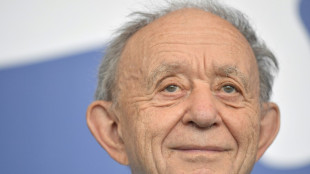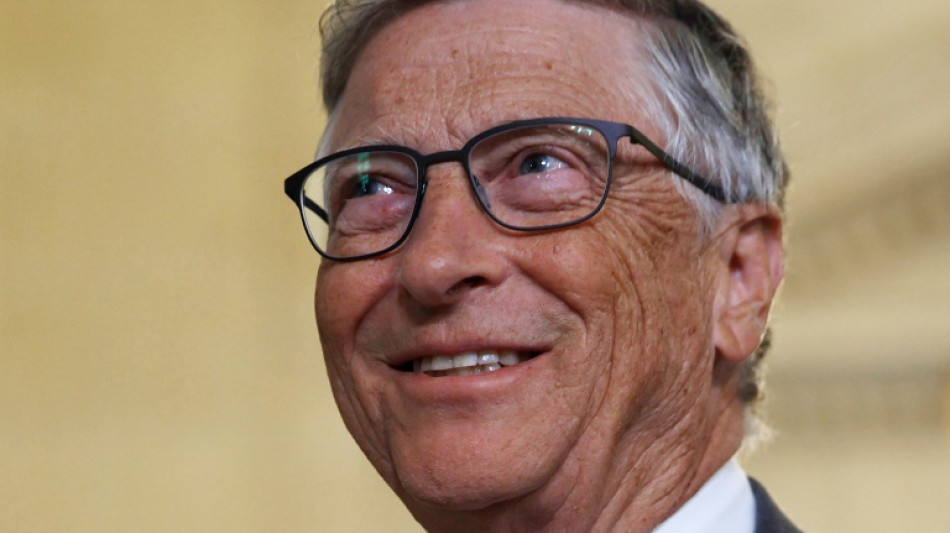
-
 Greenland entrepreneur gambles on leafy greens
Greenland entrepreneur gambles on leafy greens
-
Father of US school shooter goes on trial on murder charges
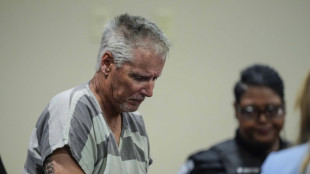
-
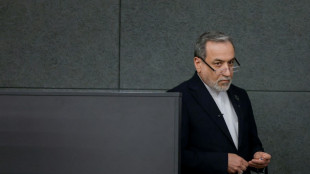 Iran, US agree on 'guiding principles' for deal at Geneva talks: Iran FM
Iran, US agree on 'guiding principles' for deal at Geneva talks: Iran FM
-
Warner Bros. gives Paramount one week to outbid Netflix
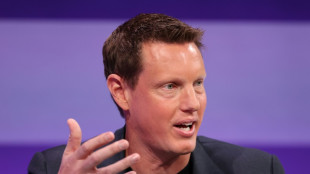
-
 Russians, Belarusians allowed to compete under own flags at 2026 Paralympics: IPC tells AFP
Russians, Belarusians allowed to compete under own flags at 2026 Paralympics: IPC tells AFP
-
Ukrainian wife battles blackouts to keep terminally ill husband alive
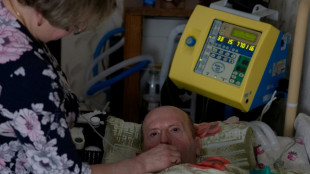
-
 Pollock handed first England start for Ireland visit
Pollock handed first England start for Ireland visit
-
Oil prices fall back as 'hopeful' Tehran responds to Trump
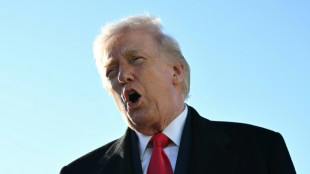
-
 Arteta welcomes Madueke and Saka's competition for places
Arteta welcomes Madueke and Saka's competition for places
-
France and India hail growing ties as Modi hosts Macron
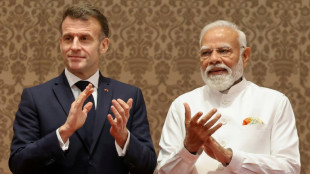
-
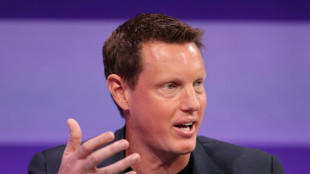 Warner Bros. says reopening talks with Paramount on its buyout offer
Warner Bros. says reopening talks with Paramount on its buyout offer
-
Slalom showdown Shiffrin's last chance for Milan-Cortina medal

-
 Protesters march in Kosovo, as ex-president's war crimes trial nears end
Protesters march in Kosovo, as ex-president's war crimes trial nears end
-
No pressure on India opener Abhishek after two ducks, says coach

-
 Sakamoto eyes figure skating gold in Olympic farewell
Sakamoto eyes figure skating gold in Olympic farewell
-
Pereira 'trusts' Forest owner Marinakis despite three sackings this season

-
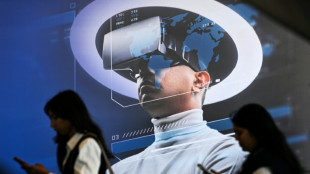 AI 'arms race' risks human extinction, warns top computing expert
AI 'arms race' risks human extinction, warns top computing expert
-
Israeli bobsleigher dismisses Olympics 'diatribe' by Swiss TV commentator

-
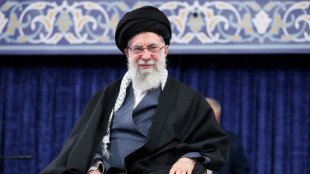 Supreme leader says Iran can sink US warship as Geneva talks conclude
Supreme leader says Iran can sink US warship as Geneva talks conclude
-
Australia, Ireland out of T20 World Cup as Zimbabwe qualify after washout

-
 Greece experts to examine Nazi atrocity photos find
Greece experts to examine Nazi atrocity photos find
-
Los Angeles mayor calls for 2028 Olympics chairman to step down over Epstein files
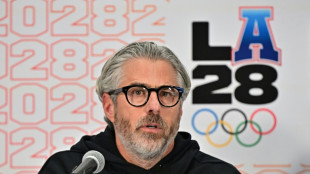
-
 Evenepoel takes UAE Tour lead with time-trial win
Evenepoel takes UAE Tour lead with time-trial win
-
Oil prices rise as Trump ramps up Iran threats
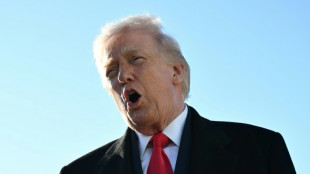
-
 EU investigates Shein over sale of childlike sex dolls
EU investigates Shein over sale of childlike sex dolls
-
Bangladesh's new PM, political heir Tarique Rahman
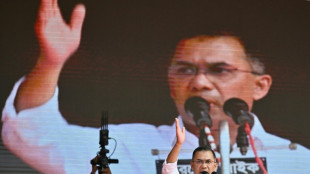
-
 Rain threatens to knock Australia out of T20 World Cup
Rain threatens to knock Australia out of T20 World Cup
-
US civil rights leader Jesse Jackson dies at 84: family
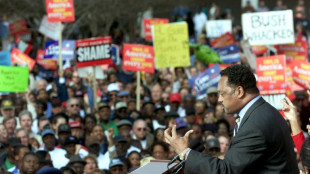
-
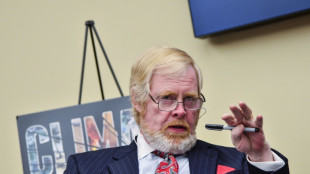 Trump's new envoy arrives in South Africa with relations frayed
Trump's new envoy arrives in South Africa with relations frayed
-
Jesse Jackson: civil rights lion sought 'common ground'
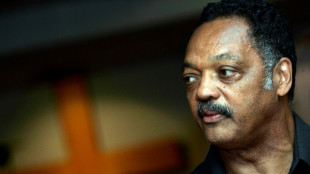
-
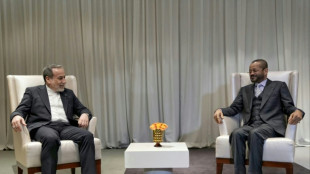 Iran, United States hold new talks in Geneva
Iran, United States hold new talks in Geneva
-
Tariq confident Pakistan can bounce back after India drubbing

-
 Being back in the USA 'feels amazing', says Vonn
Being back in the USA 'feels amazing', says Vonn
-
New Zealand cruise into Super Eights at T20 World Cup

-
 Moscow, Kyiv meet for US-brokered talks after fresh attacks
Moscow, Kyiv meet for US-brokered talks after fresh attacks
-
Exhilarating Italy aim to sign off with giant-killing at T20 World Cup

-
 Samra hits 110 for Canada against New Zealand at T20 World Cup
Samra hits 110 for Canada against New Zealand at T20 World Cup
-
'Made in Europe' or 'Made with Europe'? Buy European push splits bloc

-
 Slovakia revamps bunkers with Ukraine war uncomfortably close
Slovakia revamps bunkers with Ukraine war uncomfortably close
-
Sydney man jailed for mailing reptiles in popcorn bags
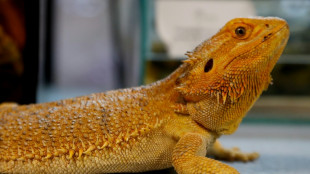
-
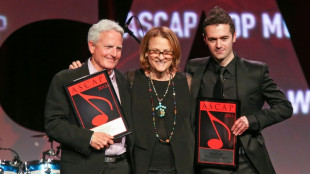 'Like a Virgin' songwriter Billy Steinberg dies at 75
'Like a Virgin' songwriter Billy Steinberg dies at 75
-
Who fills Sexton vacuum? Irish fly-half debate no closer to resolution

-
 Japan hails 'new chapter' with first Olympic pairs skating gold
Japan hails 'new chapter' with first Olympic pairs skating gold
-
Russian prosthetics workshops fill up with wounded soldiers
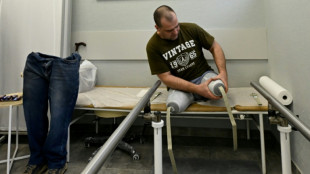
-
 'Not just props that eat': Extras seek recognition at their own 'Oscars'
'Not just props that eat': Extras seek recognition at their own 'Oscars'
-
Bangladesh PM-to-be Tarique Rahman and lawmakers sworn into parliament
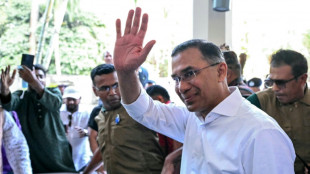
-
 At least 14 killed in spate of attacks in northwest Pakistan
At least 14 killed in spate of attacks in northwest Pakistan
-
Peru Congress to debate impeachment of interim president
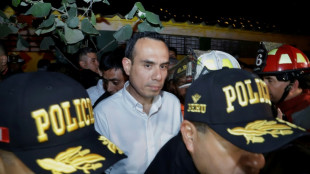
-
 Bleak future for West Bank pupils as budget cuts bite
Bleak future for West Bank pupils as budget cuts bite
-
Oil in spotlight as Trump's Iran warning rattles sleepy markets
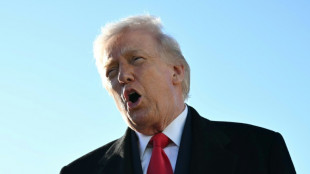

Four men loom large in Microsoft history
Microsoft was shaped by Bill Gates, Paul Allen, Steve Ballmer and Satya Nadella over the course of the last half-century in the male-dominated tech world.
Friends since childhood in Seattle, Gates and Allen founded Microsoft in 1975 with a stated goal of putting a computer in every office and home.
- Gates -
Born William Henry Gates III in 1955 in Seattle, he began writing software programs while a 13-year-old schoolboy.
Gates dropped out of Harvard in his junior year to start Microsoft with Allen.
The childhood friends created MS-DOS operating system, since renamed Windows, which went on to dominate office work.
Gates built a reputation as a formidable and sometimes ruthless leader.
Critics argue he unfairly wielded Microsoft's clout in the market, and the US pressed a winning antitrust case against the company in the late 1990s.
In 2000, Gates ceded the CEO job to Ballmer, whom he befriended while the two were students at Harvard.
Gates chose to devote himself to a charitable foundation he established with his then-wife, Melinda.
He resigned from Microsoft's board of directors in 2020 -- shortly after the firm acknowledged the existence of an "intimate" relationship with an employee in the past.
The following year, the couple divorced. Melinda Gates faulted him for his relationship with disgraced financier Jeffrey Epstein, who was found guilty of sexually exploiting under-age girls.
His support of Covid-19 vaccine campaigns and agriculture programs that focus on climate change and women made Gates a favorite target of conspiracy theorists.
Baseless accusations aimed at Gates include him putting tracking chips in vaccines.
- Allen -
Paul Allen, born in 1953 in Seattle, was a schoolmate of Gates.
Allen was 10 when he started a science club at home, and would later bond with young Gates over computers.
"Microsoft would never have happened without Paul," Gates wrote in tribute to Allen, who died of cancer complications in 2018.
Gates told of Allen showing him a magazine featuring a computer running on a new chip, and warning that a tech revolution was happening without them.
Allen is credited with combining "microcomputer" and "software" to come up with "Micro-Soft".
He left Microsoft in 1983, but remained a board member until 2000. He went on to accuse Gates and Ballmer of scheming to "rip him off" by getting hold of his shares while he battled cancer.
- Ballmer -
Ballmer was seen as a devoted salesman who ramped up Microsoft revenue while neglecting innovation.
A Michigan native with a talent for mathematics, he graduated from Harvard.
Ballmer joined Microsoft in 1980 and was best man at the 1994 wedding of Bill and Melinda Gates.
Ballmer, now 69, succeeded Gates as chief executive in 2000.
His enthusiastic gestures, awkward dance moves, and voice-straining shouts made him the stuff of internet memes and company lore.
Ballmer oversaw the launch of Xbox video game consoles, Surface tablets, and Bing online search engine. Microsoft bought Skype and Nokia's mobile phone division on Ballmer's watch.
During his tenure, Microsoft was seen as clinging to PCs while lifestyles raced toward mobile devices and cloud-based software.
His product failures include Zune digital music players, Kin mobile phones, and a Vista version of Windows.
- Nadella -
Nadella took over as chief executive in early 2014 and says he learned leadership skills playing cricket as a boy growing up in India.
Nadella, who will turn 58 in August, was hired in 1992 while studying at the University of Chicago.
Early in his academic career, a drive to build things led him to pursue computer science, a focus not available during his engineering studies at Mangalore University.
Nadella's Microsoft bio shows stints in research, business, server and online services units.
For relaxation, he turns to poetry, which he likened to complex data compressed to express rich ideas in few words.
Nadella held firm that for Microsoft to succeed, it needed to adapt to a "cloud-first, mobile-first world".
Soon after becoming chief, he ordered the biggest reorganization in Microsoft's history.
He is credited with guiding Microsoft from a fading packaged software business to the booming market for cloud services.
Microsoft has been pumping billions of dollars into AI, investing in ChatGPT-maker OpenAI and infusing the technology across its products.
In a rare stumble, Nadella triggered an uproar his first year as chief by suggesting during an on-stage discussion that working women should trust "karma" when it comes to securing pay raises.
Microsoft's acquisitions under Nadella include Sweden-based Mojang, maker of the popular video game Minecraft; social network LinkedIn, and the GitHub online platform catering to software developers.
F.Schneider--AMWN

